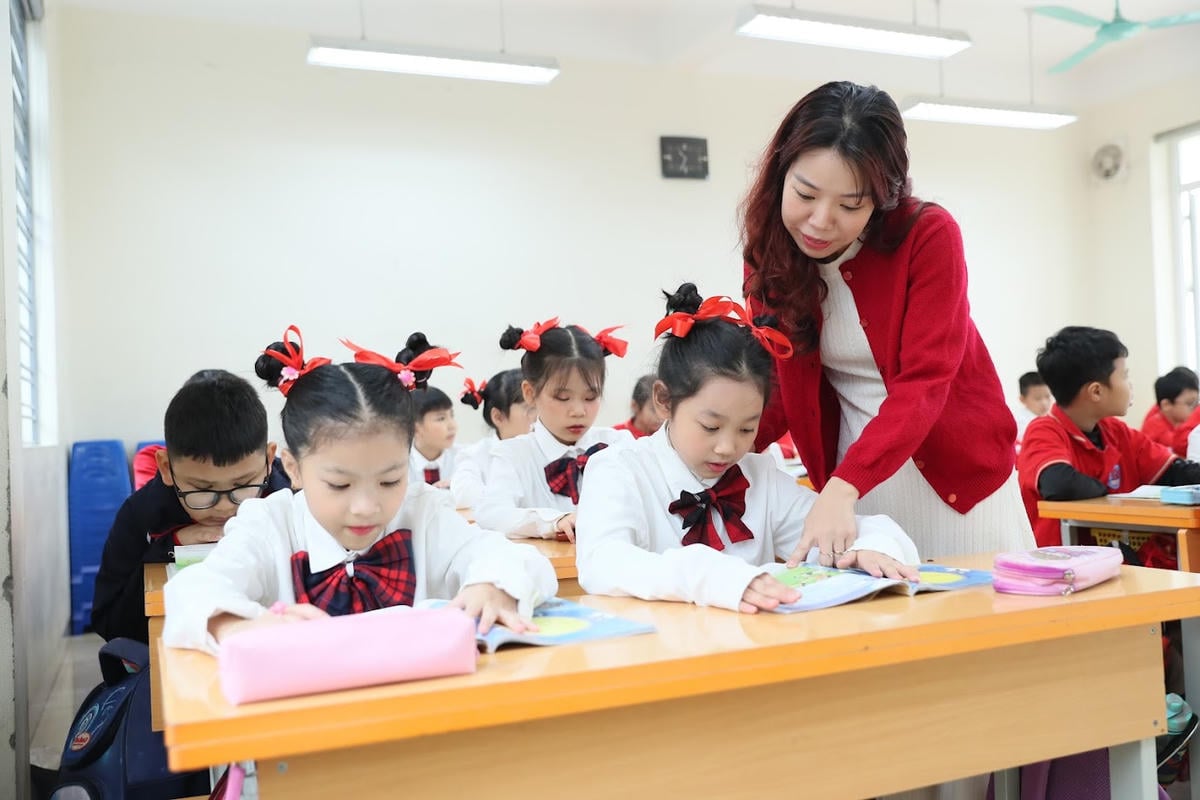
The "inspiring" teacher in the digital age
Young teacher Nguyen Khanh at Huu Thanh B Primary School, Hieu Thanh Commune, Vinh Long Province is known by many people in the area for his free summer class model that has been maintained for the past 9 years. 3 sessions per week, the class includes handwriting practice, singing music, drawing, life skills, acting and practicing being a program host. In the rural area where there is a lack of playgrounds every summer, the class was opened to help children have a space to study and experience in the spirit of "learning while playing, playing while learning" while ensuring safety. From 25 children, the model has now spread to many communes with more than 600 students participating.
In 2016, Mr. Khanh founded the "Mutual Support" Charity Fund, which has been maintained for nearly 10 years by deducting from his monthly personal salary along with funds mobilized from donors to support scholarships for poor but studious students, lonely elderly people, poor households... The Fund also mobilizes to repair houses, adopt poor children up to 18 years old, organize "Meals of Love", support schools in remote areas to organize activities for students...
With his benevolent heart, teacher Nguyen Khanh is one of 150 individuals honored in the "Honoring the Torchbearer" Award organized by Dai Doan Ket Newspaper under the direction of the Central Committee of the Vietnam Fatherland Front in coordination with Saigon Beer - Alcohol - Beverage Corporation ( SABECO ).
Ms. Giang Thi Tuyen, a teacher at Phu Lung Primary School (Bach Dich Commune, Tuyen Quang Province) is currently working in a border commune with 100% of students being ethnic minorities. Ms. Tuyen said that since 2020, her school no longer has a boarding system, so students have to bring their own meals to school. Because of difficult family circumstances, there is very little or no rice for lunch, only men men and home-grown vegetable soup, which makes teachers choke up. At a meeting with outstanding teachers participating in the program "Sharing with Teachers 2025" in Hanoi on the occasion of November 20, Ms. Tuyen expressed her wish that leaders at all levels pay more attention to students in mountainous areas.
This wish has been gradually realized by the drastic policies of our Party and State, typically the policy of investing in the construction of primary and secondary boarding schools in 248 border communes. In particular, the pilot investment will complete the construction or renovation of 100 schools in 2025 (at the latest by the opening of the 2026-2027 school year). These schools will be models for further widespread implementation, completing the investment goal of building 248 schools in the next 2-3 years.
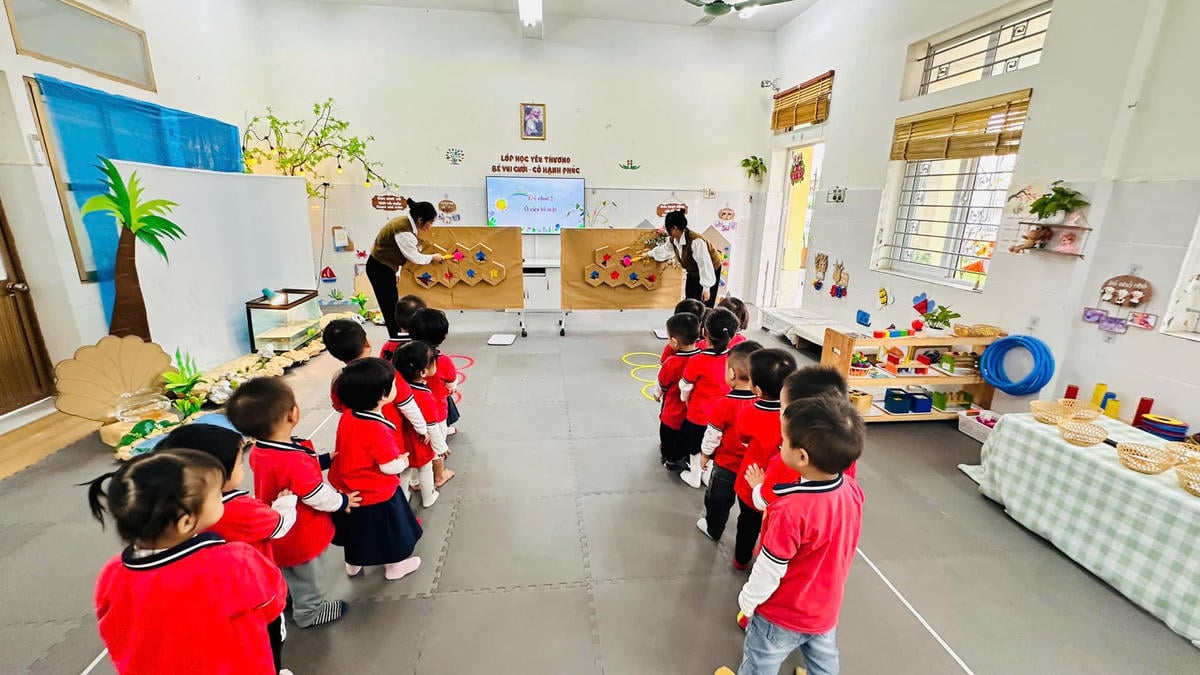
In Tuyen Quang province, 6 schools were simultaneously deployed this November, expected to be completed in August 2026. It is expected that in phase 2 (next 2-3 years), the remaining 10 schools will be simultaneously deployed (5 new schools will be built and 5 schools will be upgraded and renovated), completing the entire target of 16 schools. Thus, teachers and students of Bach Dich commune will soon have a new school with a system of classrooms, dormitories, dining halls, common areas and synchronous technical infrastructure, creating a stable and safe learning environment for ethnic minority students in remote villages as wished by teacher Tuyen and the people here.
This is also the joy that many teachers in the border area shared with reporters, because when these schools come into operation, they will help reduce the rate of school dropouts, overcome geographical barriers, and reduce the burden of travel and living for students' families. Boarding schools will also help "incubate" high-quality human resources in the area. Students who are well-trained today will become the next generation of engineers, doctors, teachers, etc. and become the core cadres of the locality in the future.
Proposal for "special salary coefficient"
The salary policy for teachers has long been mentioned with many concerns. This is also considered one of the main reasons for the difficulty in attracting and retaining teachers. In recent times, the Party and the State have made many efforts to improve the treatment of teachers through the issuance of new policies and guidelines, notably Resolution 27-NQ/TW on salary reform, and other support policies such as preferential allowances, allowances for disadvantaged areas, and improved working conditions.
Currently, the Ministry of Education and Training (MOET) and relevant agencies are organizing a wide consultation for the draft Decree regulating salary and allowance policies for teachers. One of the notable contents in the draft is that all teachers will enjoy a "special salary coefficient". Specifically, preschool teachers will receive 1.25 times, other teacher positions will receive 1.15 times the current salary coefficient. Teachers teaching students with disabilities, in border areas, and boarding schools will receive an additional 0.05.
The draft clearly states that the special coefficient is only calculated for salary, not for allowances. The new salary from January 1, 2026 will be calculated according to the formula: Salary = Basic salary x Current salary coefficient x Special coefficient. The Ministry of Education and Training affirms that although it does not help teachers' salaries to be "highest", this regulation will help salaries to be "higher" than those of civil servants of the same rank, gradually resolving current shortcomings.
Mr. Vu Minh Duc - Director of the Department of Teachers and Educational Managers (Ministry of Education and Training) said that the "special salary coefficient" is a specific policy solution with political and legal basis. Specifically, the National Assembly stipulates that "Teachers' salaries are ranked highest in the administrative career salary scale system" and this is also clearly stipulated in the Law on Teachers (effective from January 1, 2026). Mr. Duc also emphasized that this regulation is only related to the salary scale that teachers are ranked in, not related to the types of allowances that teachers are receiving, so it does not disrupt the design of the current salary system.
Teachers' salaries are currently applied according to Decree 204/2004/ND-CP, ranked according to training level. However, according to the Ministry of Education and Training, only about 1.17% of teachers receive salary type A3 (highest), while in other sectors, about 10% of officials have high-ranking positions. Most preschool and primary school teachers receive much lower salaries than officials in other sectors. In particular, 100% of preschool teachers have the lowest salary scale in the administrative career salary scale system despite the heavy work.
“The career of educating people requires teachers to be dedicated, love their profession and students; have extensive knowledge, pedagogical skills, communication skills, self-study awareness, continuous updating capacity and must build the image of an exemplary teacher... With the special nature of labor, creating knowledge products and a highly qualified workforce, having a "special coefficient" so that teachers' salaries are the highest in the administrative career salary scale is a worthy treatment for the role, position and responsibility of teachers" - Director Vu Minh Duc stated his opinion.
At the meeting with representatives of outstanding teachers on the occasion of Vietnamese Teachers' Day, November 20, Prime Minister Pham Minh Chinh paid special attention to building, reviewing, amending and supplementing appropriate policies and remuneration regimes for teachers in the spirit of Resolution 71. The Prime Minister assigned the Ministry of Education and Training to preside over and coordinate with the Ministry of Home Affairs and relevant agencies to research, build and promulgate policies to ensure that teachers receive salaries commensurate with their efforts, especially preschool teachers, those working in remote, isolated and disadvantaged areas, teachers teaching arduous and hazardous professions...
In the context of increasingly fierce competition for high-quality human resources, prioritizing all resources and building a breakthrough mechanism for education not only aims to improve teachers' lives but also lays the foundation for sustainable development. The draft Decree on salary and allowance policies for teachers is opening up new opportunities to resolve long-standing backlogs. When completed and promulgated, the Decree is expected to create a strong change, helping teachers feel secure in their work, thereby improving the quality of teaching and learning.
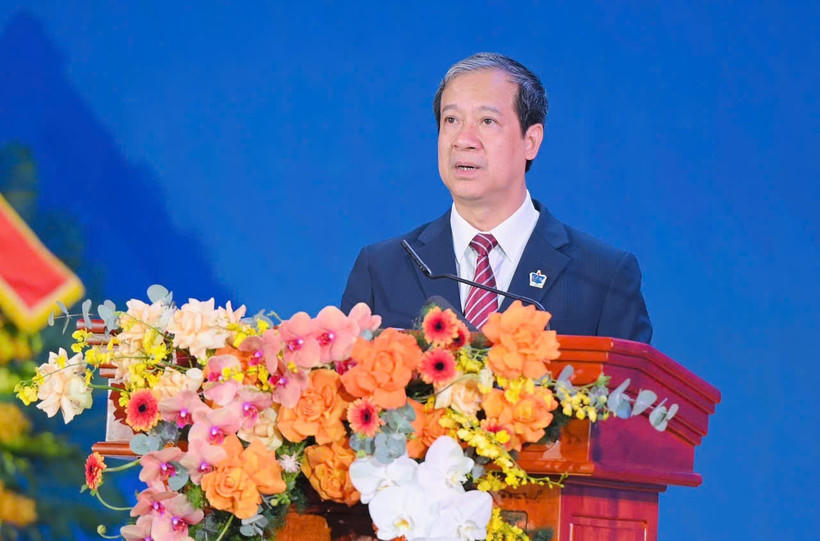
Minister of Education and Training Nguyen Kim Son.
Source: https://daidoanket.vn/ky-niem-ngay-nha-giao-viet-nam-20-11-ton-vinh-vi-the-nha-giao.html


![[Photo] Visit Hung Yen to admire the "wooden masterpiece" pagoda in the heart of the Northern Delta](/_next/image?url=https%3A%2F%2Fvphoto.vietnam.vn%2Fthumb%2F1200x675%2Fvietnam%2Fresource%2FIMAGE%2F2025%2F11%2F21%2F1763716446000_a1-bnd-8471-1769-jpg.webp&w=3840&q=75)
![[Photo] General Secretary To Lam receives President of the Senate of the Czech Republic Milos Vystrcil](/_next/image?url=https%3A%2F%2Fvphoto.vietnam.vn%2Fthumb%2F1200x675%2Fvietnam%2Fresource%2FIMAGE%2F2025%2F11%2F21%2F1763723946294_ndo_br_1-8401-jpg.webp&w=3840&q=75)
![[Photo] National Assembly Chairman Tran Thanh Man holds talks with President of the Senate of the Czech Republic Milos Vystrcil](/_next/image?url=https%3A%2F%2Fvphoto.vietnam.vn%2Fthumb%2F1200x675%2Fvietnam%2Fresource%2FIMAGE%2F2025%2F11%2F21%2F1763715853195_ndo_br_bnd-6440-jpg.webp&w=3840&q=75)

![[Photo] President Luong Cuong receives Speaker of the Korean National Assembly Woo Won Shik](/_next/image?url=https%3A%2F%2Fvphoto.vietnam.vn%2Fthumb%2F1200x675%2Fvietnam%2Fresource%2FIMAGE%2F2025%2F11%2F21%2F1763720046458_ndo_br_1-jpg.webp&w=3840&q=75)

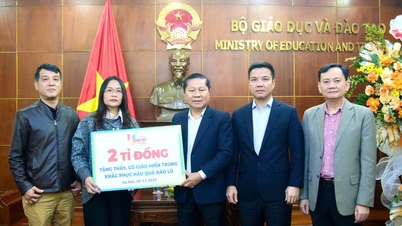

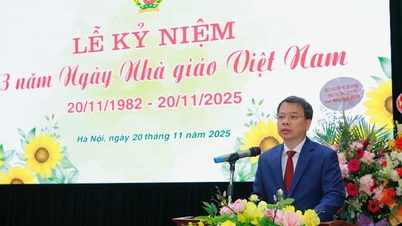

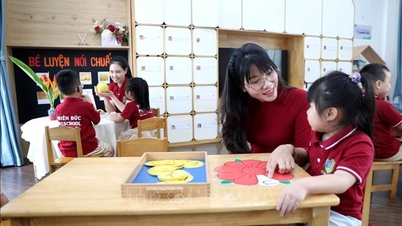

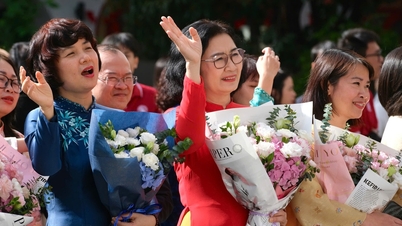
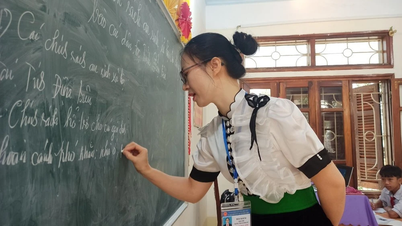

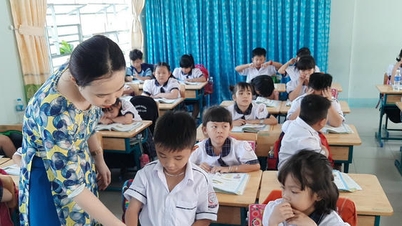



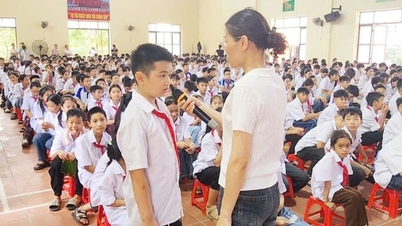





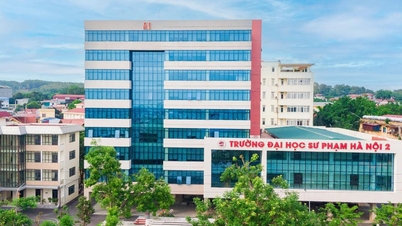





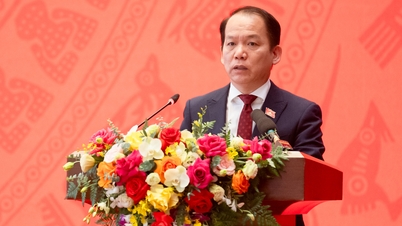
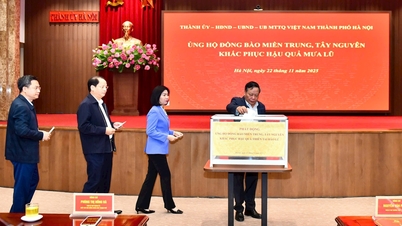
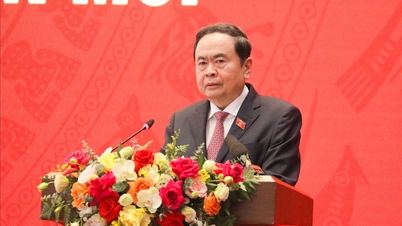

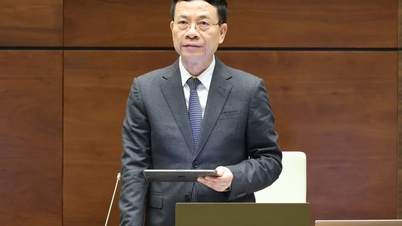
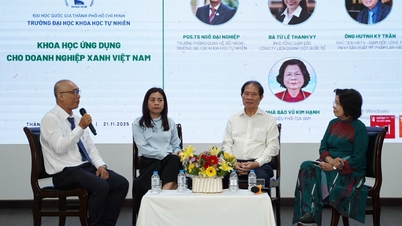




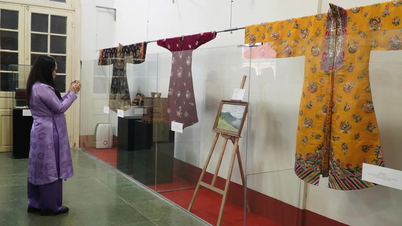

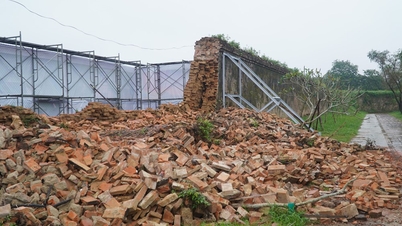

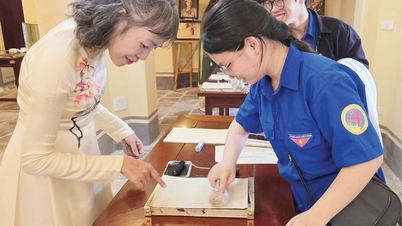







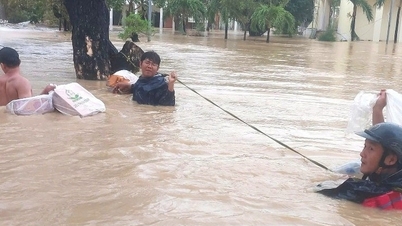

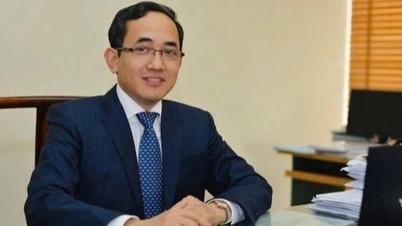
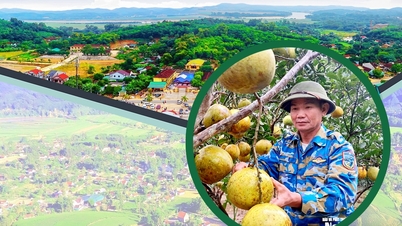

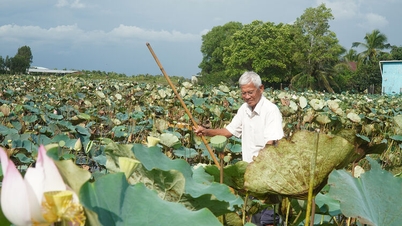








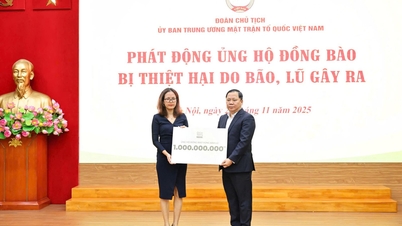







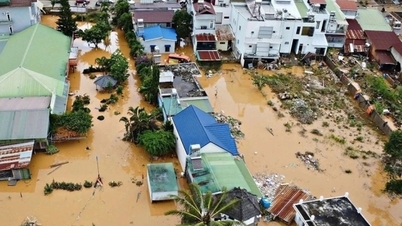

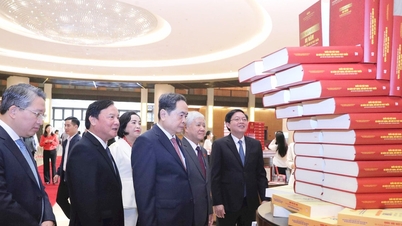

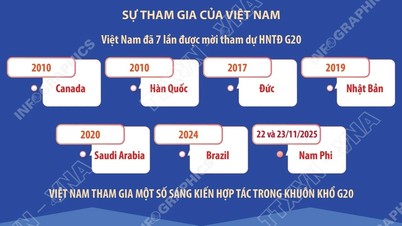
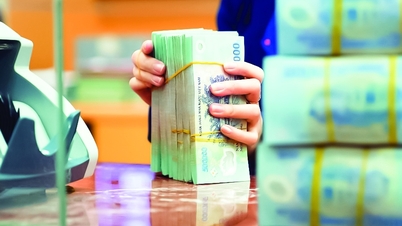

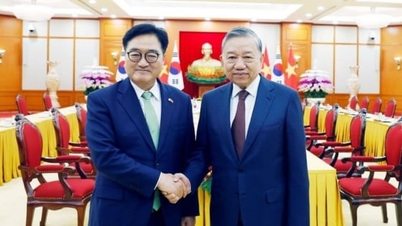





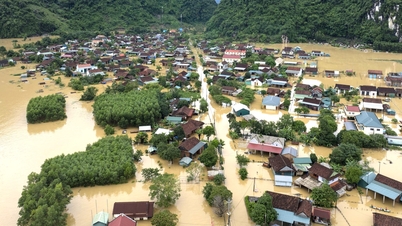



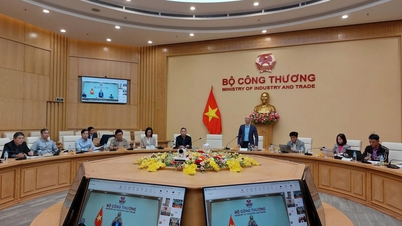
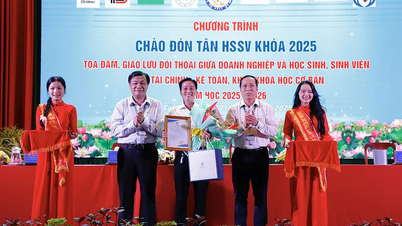

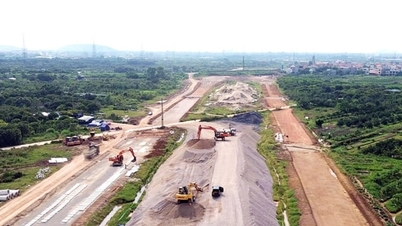
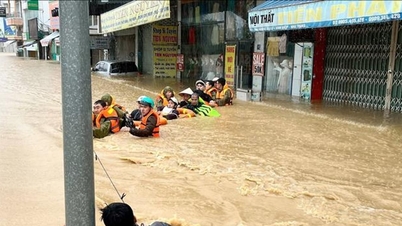

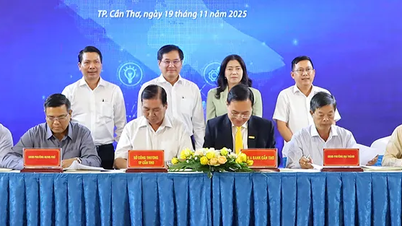
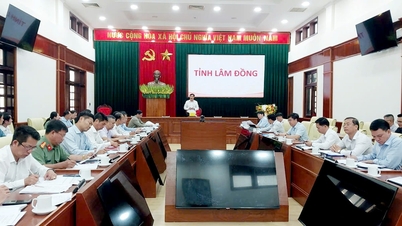















Comment (0)